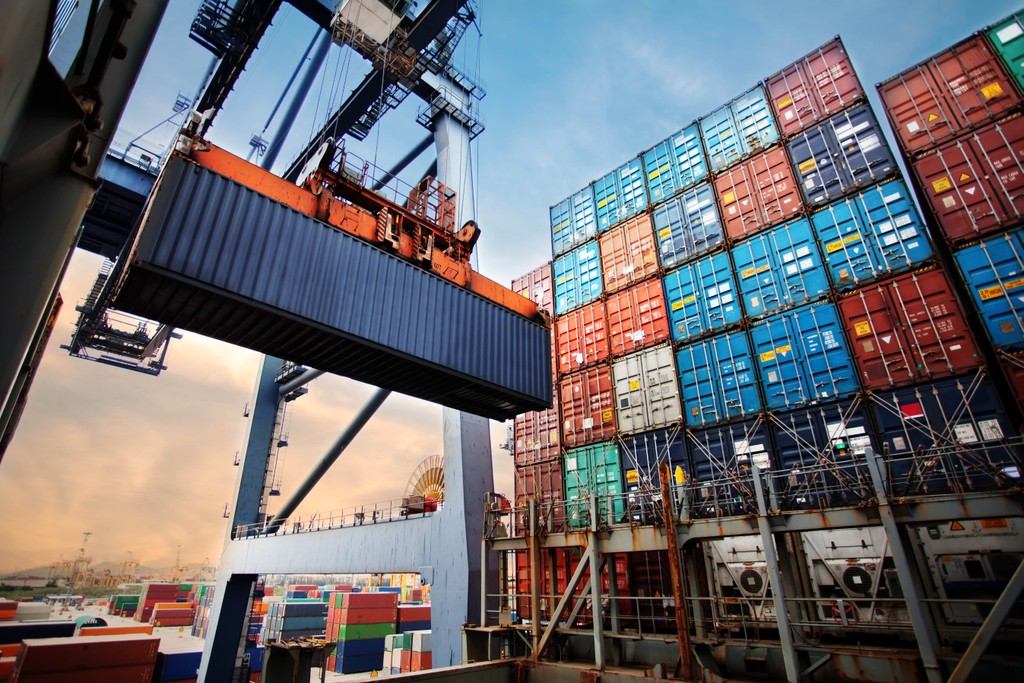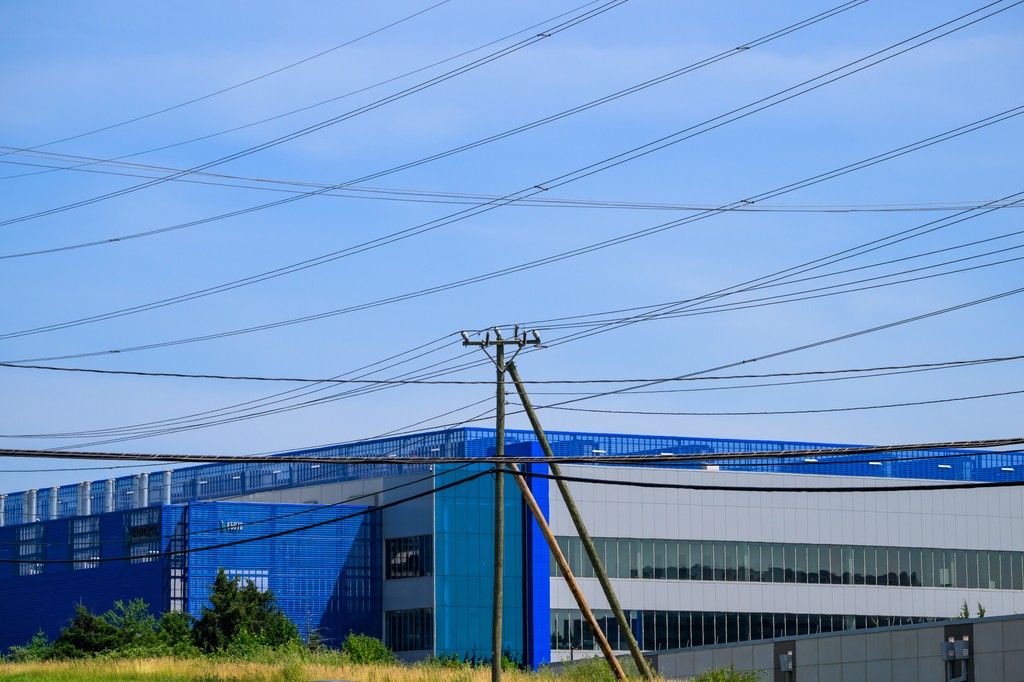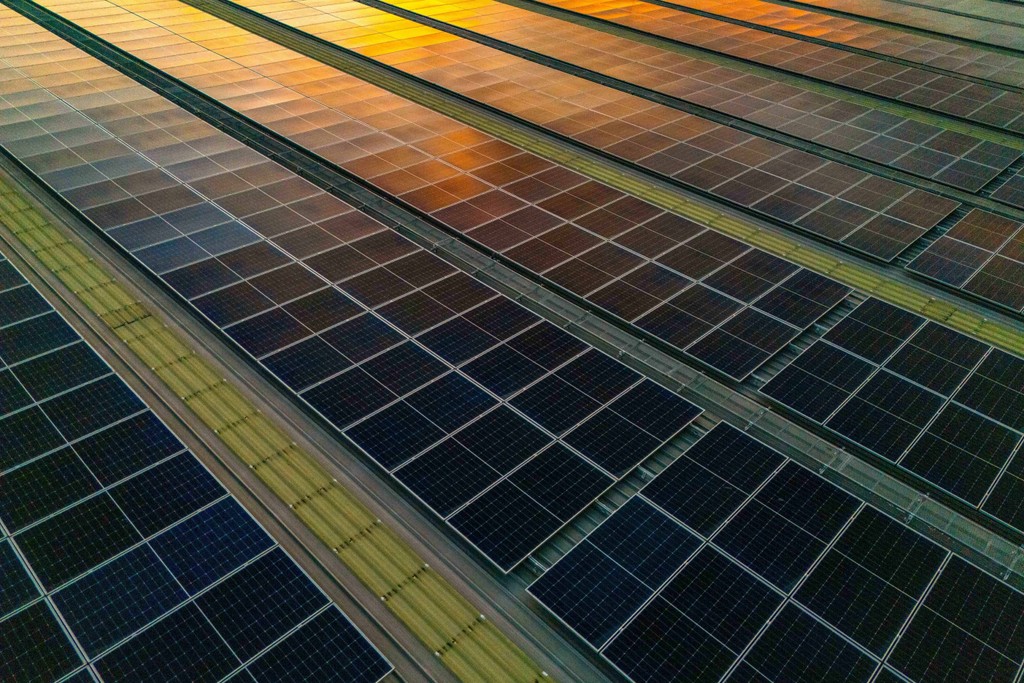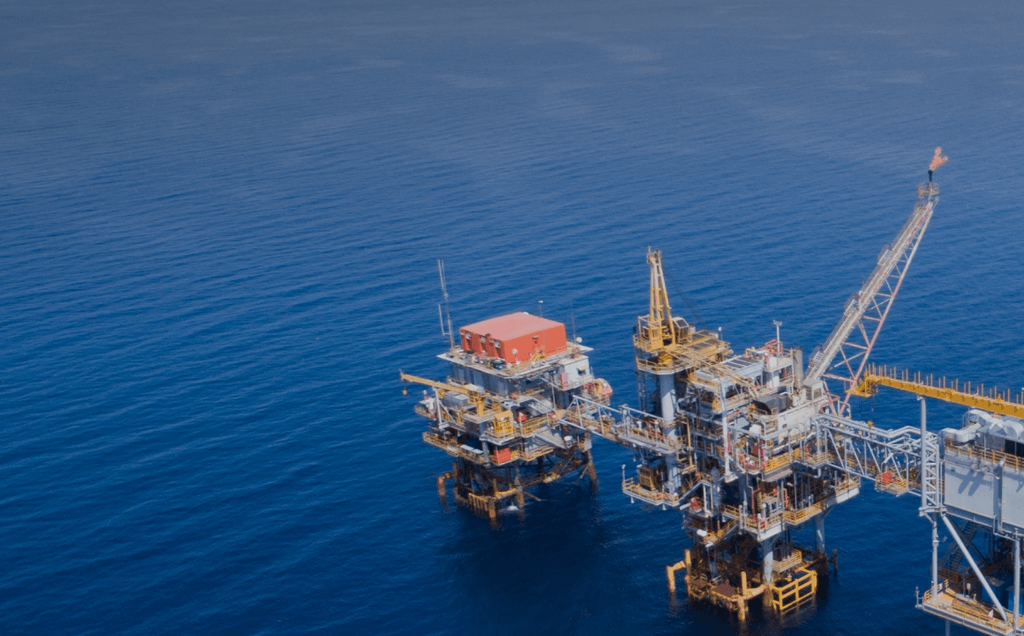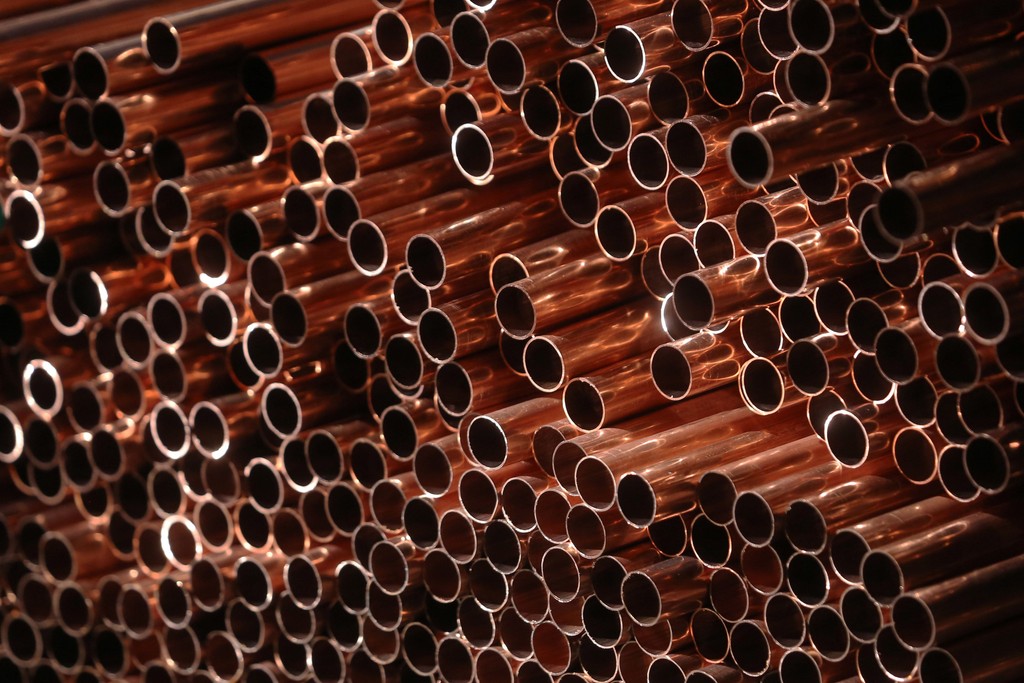This article first appeared on the BNEF mobile app and the Bloomberg Terminal.
- Alternative jet fuel is at least 2.5 times cost of fossil jet
- A carbon price of $252 could make some fuel competitive
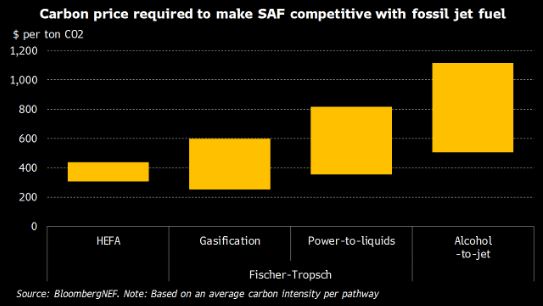
Sustainable aviation fuels, or SAFs, are the only commercialized solution to decarbonize the aviation sector in the near-term, according to BloombergNEF. However, high production costs make SAF between 2.5 and 8 times more expensive than conventional jet fuel.
SAFs are alternative fuels derived from organic materials, or made from renewable energy, and can reduce lifecycle emissions from flying by as much as 80%. BloombergNEF expects the aviation sector will be one of the driving forces behind oil demand growth in the coming decades, with jet fuel demand doubling by 2050. In the absence of a meaningful scale-up in low-carbon alternatives, emissions from the sector will double too, according to BloombergNEF’s Aviation Fuel Outlook.
BNEF calculated the theoretical carbon price that would bring conventional jet fuel in line with each of the main SAF pathways. The lowest carbon price was for gasification + Fischer Tropsch, at $252 per ton of CO2.
By comparison, the EU ETS carbon price averaged 24.80 euros per ton in 2020 (about $28 per ton CO2). BNEF expects that the EU ETS price could rise to over 100 euros per ton CO2 by 2030.
BNEF Shorts are research excerpts available only on the BNEF mobile app and the Bloomberg Terminal, highlighting key findings from our reports. If you would like to learn more about our services, please contact us.

